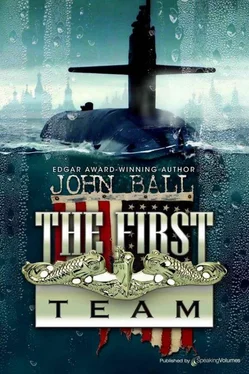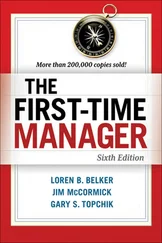Джон Болл - The First Team
Здесь есть возможность читать онлайн «Джон Болл - The First Team» весь текст электронной книги совершенно бесплатно (целиком полную версию без сокращений). В некоторых случаях можно слушать аудио, скачать через торрент в формате fb2 и присутствует краткое содержание. Год выпуска: 2013, Жанр: Триллер, на английском языке. Описание произведения, (предисловие) а так же отзывы посетителей доступны на портале библиотеки ЛибКат.
- Название:The First Team
- Автор:
- Жанр:
- Год:2013
- ISBN:нет данных
- Рейтинг книги:5 / 5. Голосов: 1
-
Избранное:Добавить в избранное
- Отзывы:
-
Ваша оценка:
- 100
- 1
- 2
- 3
- 4
- 5
The First Team: краткое содержание, описание и аннотация
Предлагаем к чтению аннотацию, описание, краткое содержание или предисловие (зависит от того, что написал сам автор книги «The First Team»). Если вы не нашли необходимую информацию о книге — напишите в комментариях, мы постараемся отыскать её.
Student protesters are being slaughtered in the Midwest.
The Jewish pogroms have begun.
You are now living in Soviet — occupied America!
One nuclear submarine and a handful of determined patriots against the combined might of Russia and Soviet-occupied America… The Most Explosive and Gripping “What If” Novel of Our Time!
First published January 1971
The First Team — читать онлайн бесплатно полную книгу (весь текст) целиком
Ниже представлен текст книги, разбитый по страницам. Система сохранения места последней прочитанной страницы, позволяет с удобством читать онлайн бесплатно книгу «The First Team», без необходимости каждый раз заново искать на чём Вы остановились. Поставьте закладку, и сможете в любой момент перейти на страницу, на которой закончили чтение.
Интервал:
Закладка:
He knew, as did every other man on board, that the enemy would be waiting for them with everything that he had been able to muster and position in the time available. And Magsaysay was strictly on her own; if anything happened to her there would be no escaping into the frigid water, where human survival time would be a matter of brief minutes. And if the ship sustained damage and could not maneuver, there would be no rescue party to recover the men trapped inside her hull.
The captain interrupted his thoughts. “We may have a break here, Walt. It’s been abnormally cold even for this region this fall, and there is at least some ice in the strait. If it’s thick enough, it may impede surface traffic.”
“That would complicate things for aircraft too, I imagine,” Wagner said.
“True. Against us is the fact that they know our speed and when to expect us. Any attack subs that they’ve been able to get into position will be faster and more maneuverable then we are — they don’t have missile bays to contend with.”
“Will they be nukes?”
The captain shook his head. “Impossible to say: it depends on their deployment just before we broke loose — what they had available that they could get here ahead of us. Perhaps nothing.”
Wagner did not allow himself to fix on that hope for a moment; it was wishful thinking and little else. The enemy was noted for his tenacity of purpose, he would be up there somewhere if all he had was rowboats.
“And we can’t use SUBROC when there’s an ice cover,” Wagner noted.
“Right. I’m keeping them in the tubes because in open water they give us a major advantage.”
A crewman arrived with fresh coffee. With the brew there was a plate of freshly baked sweet rolls; the captain bit into one mechanically while he kept his attention focused on the readouts that surrounded him. In his own compartment the navigator was silently at work, continuously updating the position of the ship from the inertial platform data.
Wagner did not have to ask when contact with a possible enemy force would be made; the tight, controlled atmosphere within the submarine answered that question before it could be born. The men went about their work quietly, waiting for the sensing devices to give warning as the ship moved steadily and silently forward. Each minute that passed brought the crucial strait a quarter of a mile closer, and also the Arctic Circle, beyond which the Magsay-say would be once more in open water and free of its narrow constrictions.
He reached for a sweet roll; his hand was still in the air when over the one M.C. intercom a single word broke the quiet. “Contact.”
The exec was closest and he responded. “What is it?”
“Submarine, sir,” sonar responded. “She’s echo-ranging.”
“Range and bearing?”
“Not yet, sir, too far away.”
The captain took the one M.C. “This is the captain speaking. We have a submarine contact at maximum range. All hands man battle stations.” He turned to the exec. “Rig for silent running. Depth three hundred; get in as close to shore as you can.”
“Ay, sir.”
With that single terse response the whole atmosphere changed; Wagner saw and felt it. The watchful waiting was over; the hopes of getting through unchallenged had gone. The ship was in a combat situation now and swiftly preparing for action. From the elevated platform of the con he saw men hurrying to their appointed stations — Magsaysay was preparing for action.
He looked at the captain, and saw that he remained very much as he had been — quiet, in unquestioned command, and unshaken. His ship and his crew were his immediate prime concern, but the whole immediate future welfare of his country was on his shoulders also. If Magsaysay did not get through, then Operation Low Blow with all of its intensive planning, effort, and dedication was over.
“Can I help?” he asked.
“Chief Summers is in charge of damage control; if he needs help you could make a hand there.”
“Gladly. Shall I go now?”
“You might as well wait here for the present.”
Reports began to come in quickly: the torpedoes were readied; the ship was headed toward the shallower water where she might more easily escape detection. The exec called sonar on the M.C. “Anything more?” he asked.
“She’s still some distance away, sir, and echo-ranging at random intervals. I haven’t got her pinpointed yet.”
The captain nodded but said nothing; at fifteen knots his ship moved forward, a powerful steel phantom in the water, but not one designed primarily for underwater combat. In all probability her opponent was.
The almost intense quiet inside the submarine continued. As minute passed minute she inched steadily closer to the strait itself — and that was progress she had to make if she was eventually to reach the Beaufort Sea and the relative freedom of the vast, ice-coated Arctic waters.
It was fiercely real, every moment of it, yet it was surrounded with the aura of an illusion. For all that was actually visible the ship could have been maneuvering somewhere off the coast of Australia.
In the sonar room the operator listened with his eyes closed, intent on capturing any sound that would convey a scrap of additional information about the unseen submarine somewhere out in the waters just south of the strait. His trained ears discounted the ocean noises that came through, the evidence of the restless sea that surrounded the ship and through which she was moving. He heard another ping, faint but definite; he concentrated on the sound he had just heard and decided that it had been a minute fraction louder. The enemy was drawing closer.
The Magsaysay was moving nearer to the Seward Peninsula and the Cape of the Prince of Wales that marked its extremity; that meant that the hostile had to be somewhere in the semicircle between one hundred and eighty and three hundred and sixty degrees. A bearing slightly to the right of true north was also a possibility; that would put it directly in the strait itself where maneuvering room would be at a minimum. There, if she was an attack type, which was almost certain, and a nuke to boot, it would be a tough go.
Another ping came through the operator’s headset, and immediately after that a second one, loud and clear. The sonarman responded almost instantly; he drew a quick breath and reported. “He has contact.” The silent stealth of the Magsaysay had been penetrated; her position was known.
The captain had been expecting that, moment by moment, and he was prepared. ‘^All stop,” he ordered.
Two or three seconds later the screw went dead in the water. The submarine coasted forward gently, then, as her control surfaces began to lose effect, she began to drift downward. The depth gauge began a slow climb, an emotionless mechanical indication that the ship was settling toward the bottom. Within the hull there was an intense quiet, an awareness that the battle had been joined and that the odds for the moment were in favor of the enemy.
Sonar reported again over the M.C. “Torpedo in the water.”
The captain did not speak or move; he waited silently for the next report.
It came within a few inert, suspenseful seconds. “Two units in the water, bearing three ten degrees, bearing drift slightly right.”
The meager information gave the attack party its first opportunity for action; the data were quickly set up in the fire control system. That done, the urgency of waiting returned.
Sonar came on again. “First unit drawing rapidly to the right.” In the forward end of the ship Chief Summers listened and knew that that would be a miss. Out of two shots one almost certainly would have to be a miss; it was the other one which counted now.
Читать дальшеИнтервал:
Закладка:
Похожие книги на «The First Team»
Представляем Вашему вниманию похожие книги на «The First Team» списком для выбора. Мы отобрали схожую по названию и смыслу литературу в надежде предоставить читателям больше вариантов отыскать новые, интересные, ещё непрочитанные произведения.
Обсуждение, отзывы о книге «The First Team» и просто собственные мнения читателей. Оставьте ваши комментарии, напишите, что Вы думаете о произведении, его смысле или главных героях. Укажите что конкретно понравилось, а что нет, и почему Вы так считаете.












